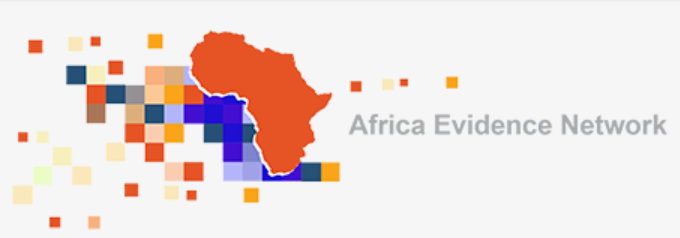
#EU4Facts panel from left to right: Former European Commissioners Janez Potocnik and Marie Ceoghegan-Quinn and European Commissioner for Education, Culture, Youth and Sport Tibor Navracsics.
The Joint Research Centre celebrates (JRC) celebrates 60 years of science for society. The JRC is the European Commission’s science and knowledge service which employs scientists to carry out research in order to provide independent scientific advice and support to the European Union policy. Established in 1957, the JRC was formed as part of the European Atomic Energy Community (Euratom) with the initial name Joint (Nuclear) Research Centre. In the beginning the Centre’s focus was nuclear technology and energy and now it has developed to an in house science and knowledge service of the European Commission. 2017 marked JRC’s 60th anniversary and this presented an opportunity for JRC to celebrate its achievements in science and evidence-informed policy-making. To commemorate this milestone JRC has created the JRC’s Institutional History Project (iHIP) which aims to capture JRC’s history by inviting all current and former JRC staff to share their own experiences in working for the organisation. Alongside this project, the JRC has planned a series of flagship events such as the JRC Annual Lecture, the #EU4Facts Conference and JRC@60 Exihibition.
The Africa Evidence Network invited Magdalena Alicja Herbowska from JRC to share highlights of the EU4Facts Conference.
On September 26th, the JRC hosted its annual #EU4Facts Conference at the European Commission’s Charlemagne Building in Brussels, Belgium. The aim of the Conference titled “EU4Facts: Evidence for Policy in a post-fact world” was to better understand the current challenges at the science policy interface in a post-fact world and to identify some future actions. I think we achieved this aim. My main takeaway is that we need to innovate in our science and knowledge production, management and communication to policy. Knowledge production needs to be even more open and inclusive, engaging with not only scientists and policy-makers, but also citizens. But also we need to harness the rich insights from the cognitive and behavioural sciences to learn how to have a greater impact on policy. These are not the ways things have been done before, and the JRC Strategy 2030 reflects our ambition to global leadership on these questions.
Thanks to the conference speakers from the political, media and science worlds, and in consultation with over 400 participants from academia, private sector and civil society, the conference came up with a list of actions that can be taken forward and implemented at the EU level, but I believe they could be an inspiration for many organisations across the world:
•DG science advisors: Each Commission department should have a science adviser to promote the use of evidence, and to advise on its quality and interpretation for policy purposes.
•Artificial Intelligence: The EU should use artificial intelligence to identify where connections between different scientific knowledge, institutions and experts need to be strengthened.
•Accountability of scientists: EU research funders should require that scientists make clear and verifiable predictions which they can be held accountable for.
•Evidence Transparency Framework: Adopt an Evidence Transparency Framework to show citizens how evidence has been used and uncertainties assessed in the formulation of policy.
•R&I priorities public debate: EU research and innovation priorities should be more publicly widely debated.
•Annual award: there should be an annual award to the most ‘scientifically literate’ politician.
•New collaboration technology: The EU should invest in technology to facilitate identification of expertise and development of dynamic collaborative teams across the EU.
•Acknowledge uncertainties: The EU should communicate clearly the facts that inform its legislation, but acknowledging where they are uncertain or lacking.
•Behavioural training: The EU should train senior policymakers in behavioural sciences to make them aware of their possible biases in making public policies.
•Local debates: The EU should help organise debates on major issues in local venues all over the EU, with expert testimonies and citizen juries.
For those of you who could not make it to the conference or did not manage to follow it online, you can still catch up and watch or read online the conference proceedings. We also feature video interviews with interesting insights into the evidence for policy debate, trust in science, communicating uncertainties and much more. Take a look at our dedicated Science Hub page where you will find the Conference Highlights video, the recording of the conference web streaming and the presentations of all the speakers (under agenda and presentations): https://ec.europa.eu/jrc/en/eu4facts
We also have a youtube channel where you can find the playlist with all video statements and interviews: https://www.youtube.com/watch?list=PLGI5zHT2w7jBlAxE28svcbIz4FlNnaezd&v=ci2Q2hy9y5s
More highlights from the conference by Professor Paul Cairney: #EU4Facts: 3 take-home points from the JRC annual conference
About the Author
Magdalena Alicja Herbowska
Magda is the Deputy Head of Unit for Knowledge Management and Geographic coordination at the EU’s Joint Research Centre in Brussels. Magda was previously Deputy Head of Cabinet of Commissioner Navracsics, working on culture. She has also worked in the European Parliament, where she was responsible for the relationship with the European Commission and other European institutions and bodies, and for ECI coordination within the Parliament. During her time at the European University Institute, she lectured on Democratic Transitions in Central and Eastern Europe at the New York University in Florence. She was a member of the Youth Convention in 2002. An economist and social scientist, Magda started her career in the European institutions in 2005.